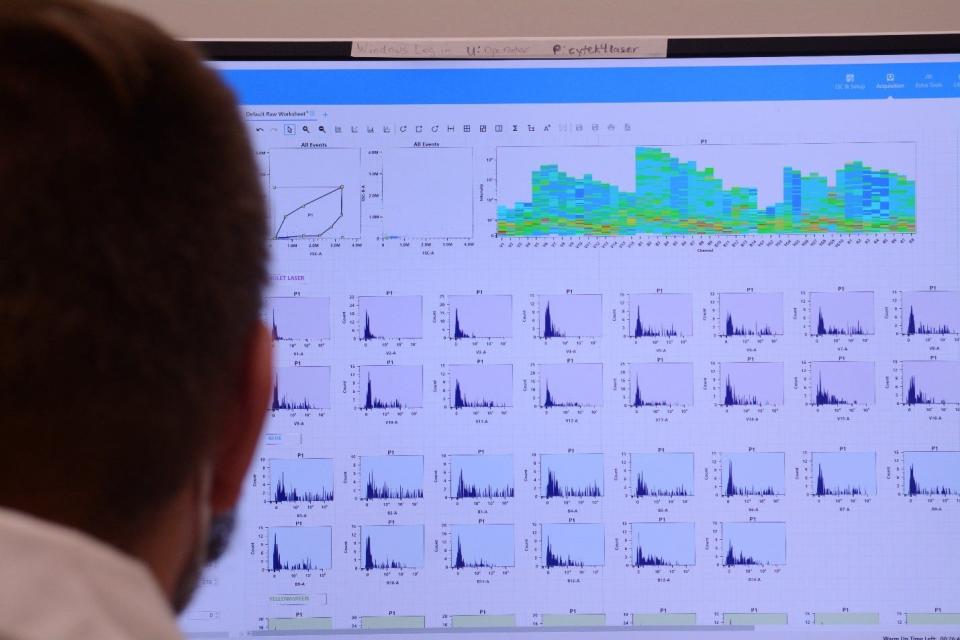How University of Missouri research could lead to new cancer, infection treatments

The idea of immunological memory – how the body remembers past infections to protect against them – could lead to new treatments for cancer and infections, University of Missouri researchers found in a a new study.
The lead researcher is Emma Teixeiro, associate professor in the MU School of Medicine. She works in the NextGen Precision Health Institute.
"Our immune system is able to recognize infections," Teixeiro said Thursday in a phone interview. "If we get re-infected, the immunological memory protects the body."
Research on mice used bacteria, increasing the level of inflammation in T-cells, which protect the body from infection.
"Inflammation is a danger signal for our body," Teixeiro said. "When we get an infection, it is an alarm system."
Some inflammation can help, but too much also can make us sick, she said. Extending the protection, therefore, is a goal.
"We have to get continuously vaccinated against influenza because the virus has changed," Teixeiro said. "In the case of cancer, we have learned to use T-cells to fight against tumors. What is less known is how to keep it at bay, that long-term protection for the life of the person."

The research found that increasing inflammation resulted in a reduced immune response instead of increasing it as expected.
"We need to really understand the immune system," Teixeiro said is a conclusion she made from the result. "In the case of cancer, we should get a better immune response."
The immune system is amazing in the amount of protection if provides, she said.
The research is a step in developing cancer vaccines and immunizations against other infections, Teixeiro said.
"In coming up with new treatments for patients, research is important," Teixeiro said. "Immunotherapies based on T-cells right now show big promise for reducing cancer or eliminating it."
The study was published in Proceedings of the National Academy of Sciences. Coauthors are Curtis Pritzl, Michael Quaney, Rebecca Newth, Karin Knudson, Vikas Saxena, Caitlyn Guldenpfennig, Diana Gil, Chris Rae, Peter Lauer, Mark Daniels and Dezzarae Luera.
"The pursuit of knowledge is what drives my curiosity as a scientist," Teiexeiro said in a news release. "While there are still more questions to answer, this research is a small step in the right direction and I am proud to be a part of it."
Roger McKinney is the Tribune's education reporter. You can reach him at rmckinney@columbiatribune.com or 573-815-1719. He's on Twitter at @rmckinney9.
This article originally appeared on Columbia Daily Tribune: MU researchers how immune system may be trained to attack cancer

